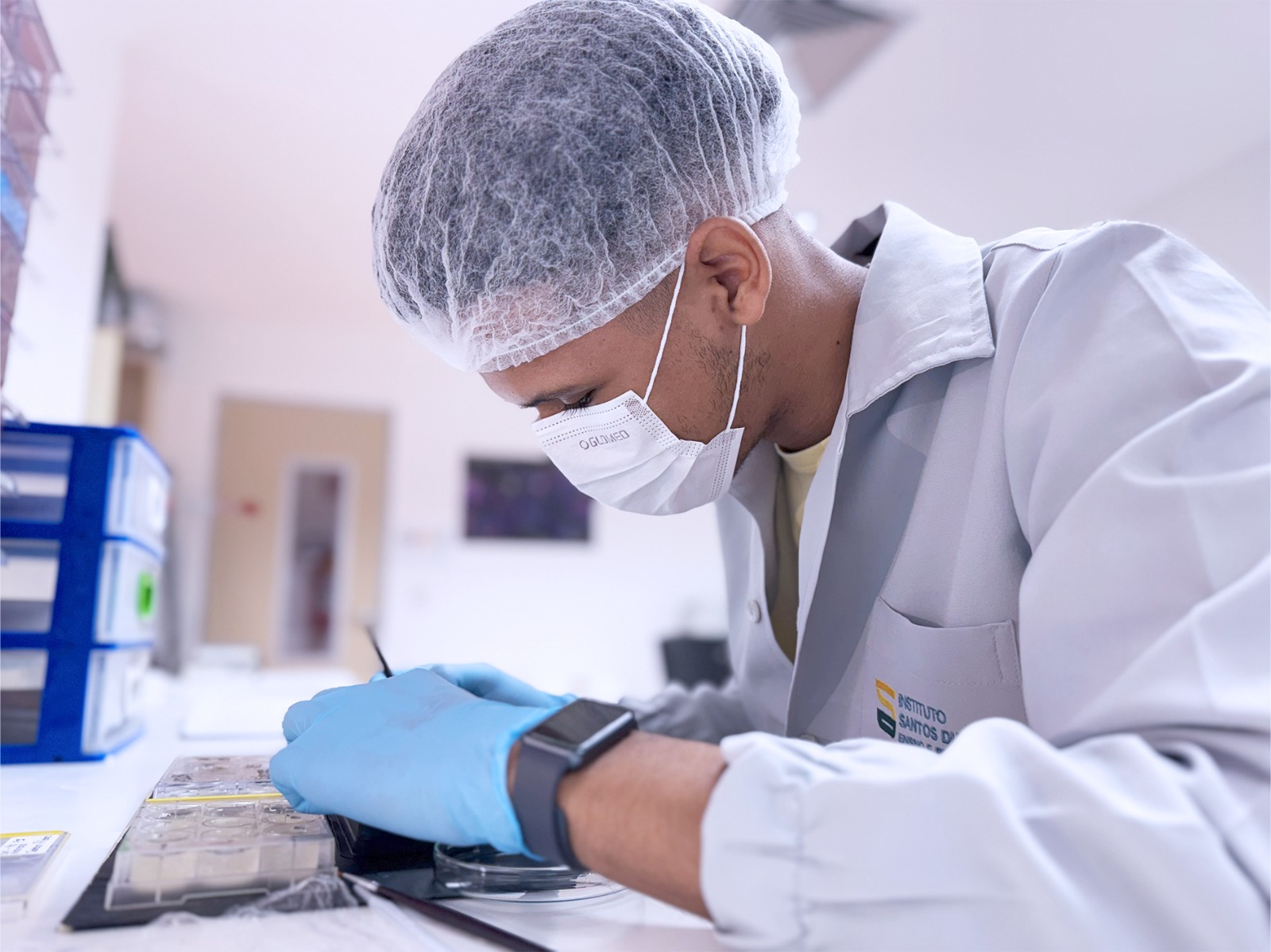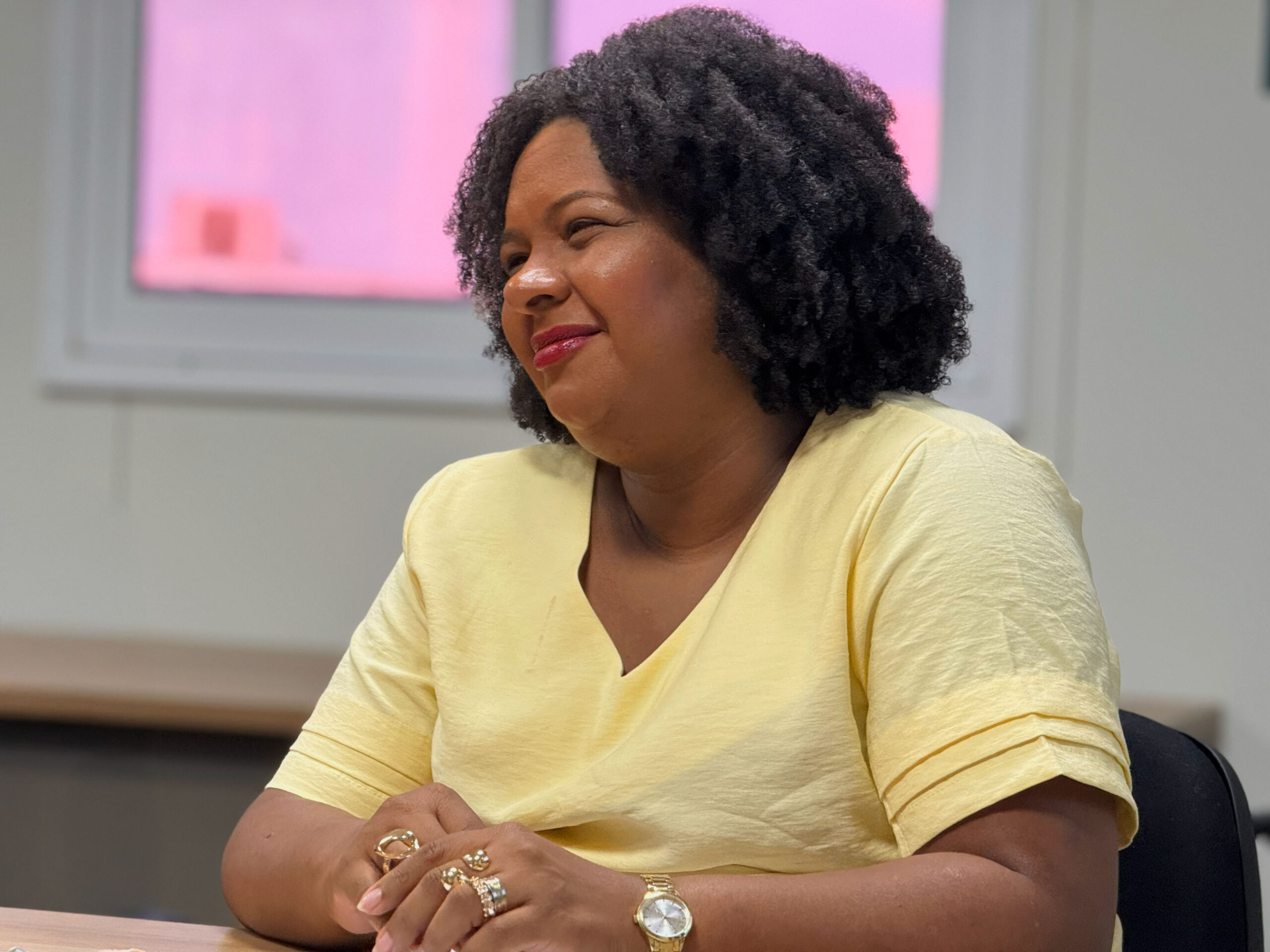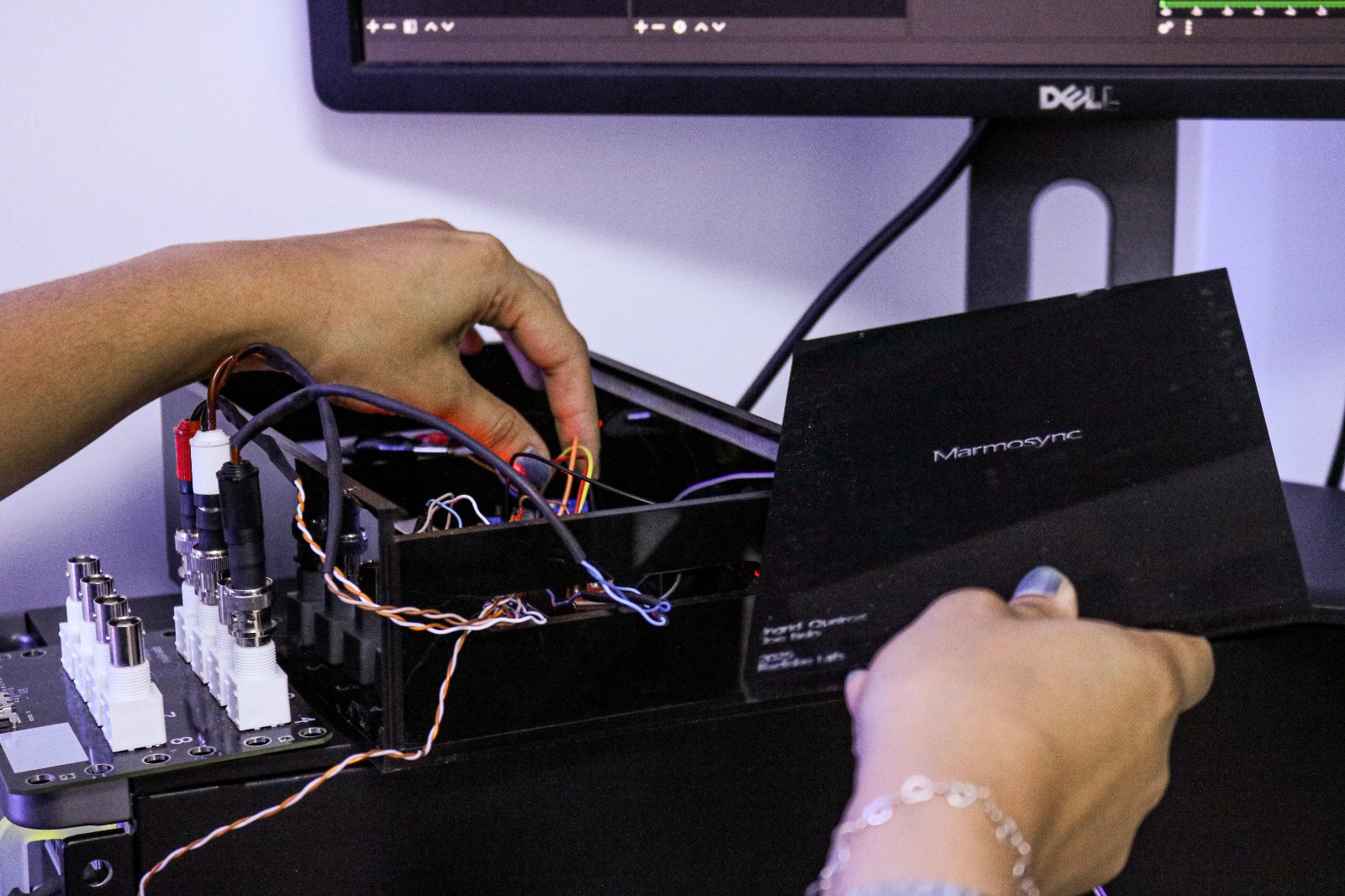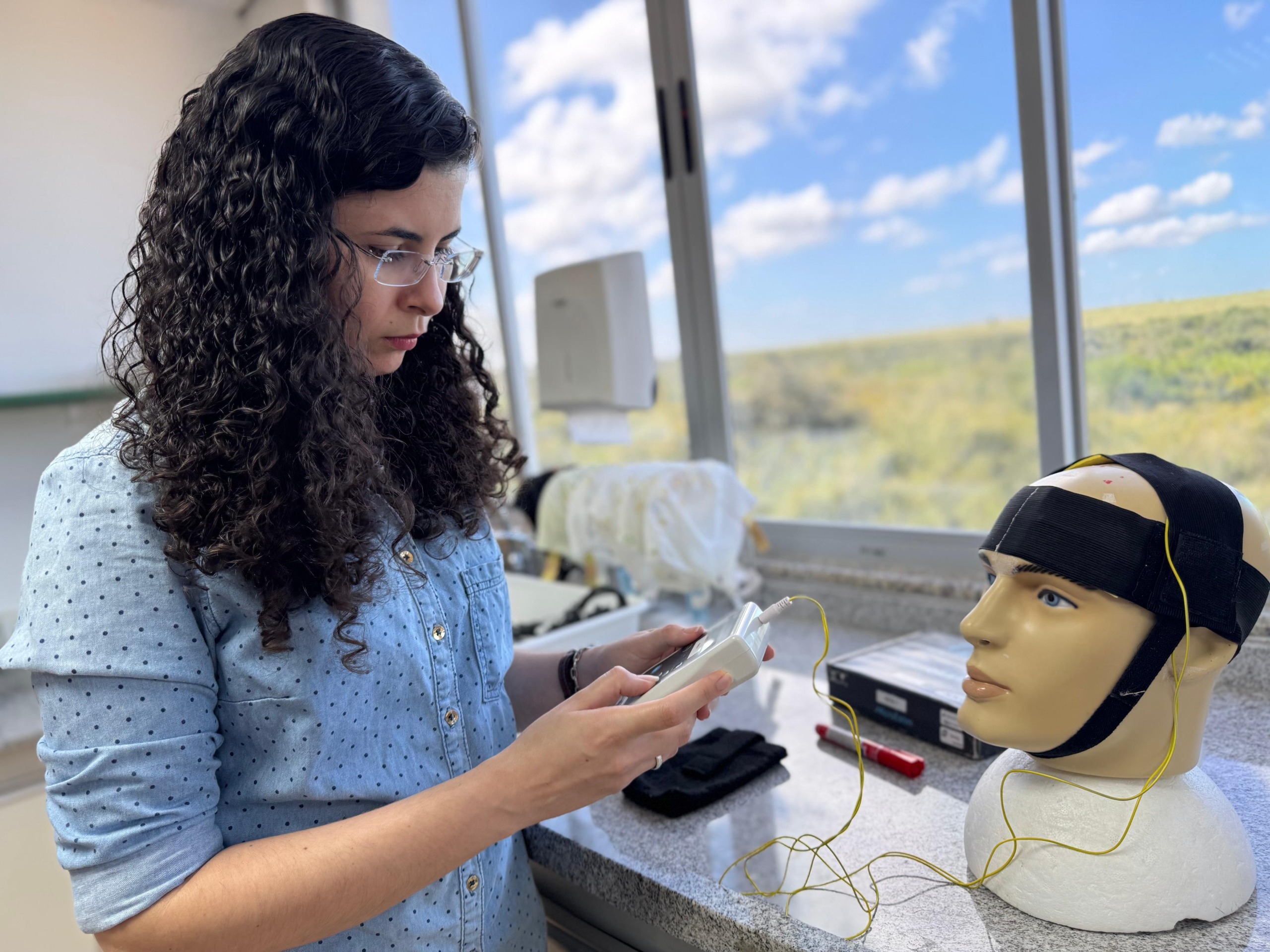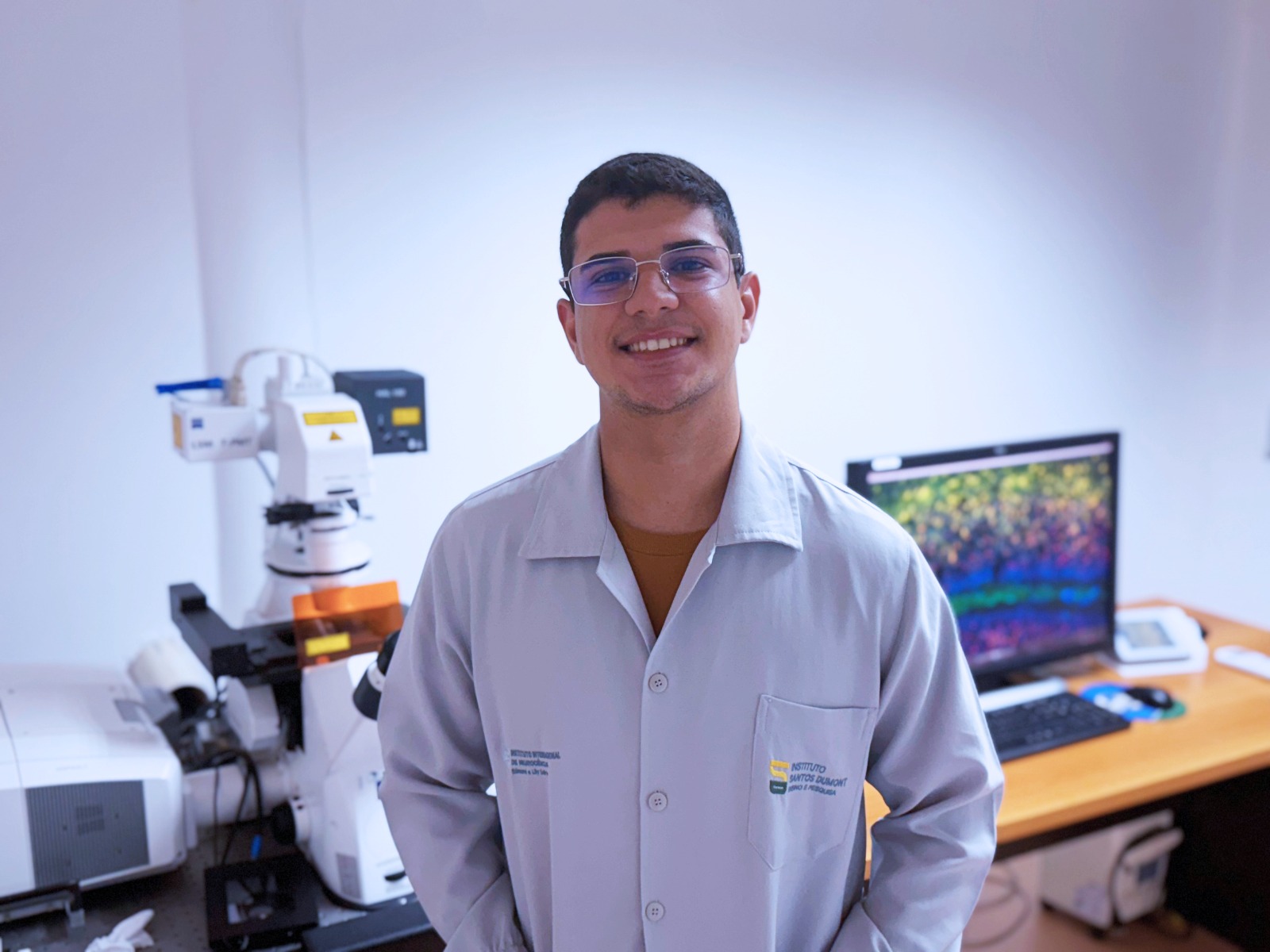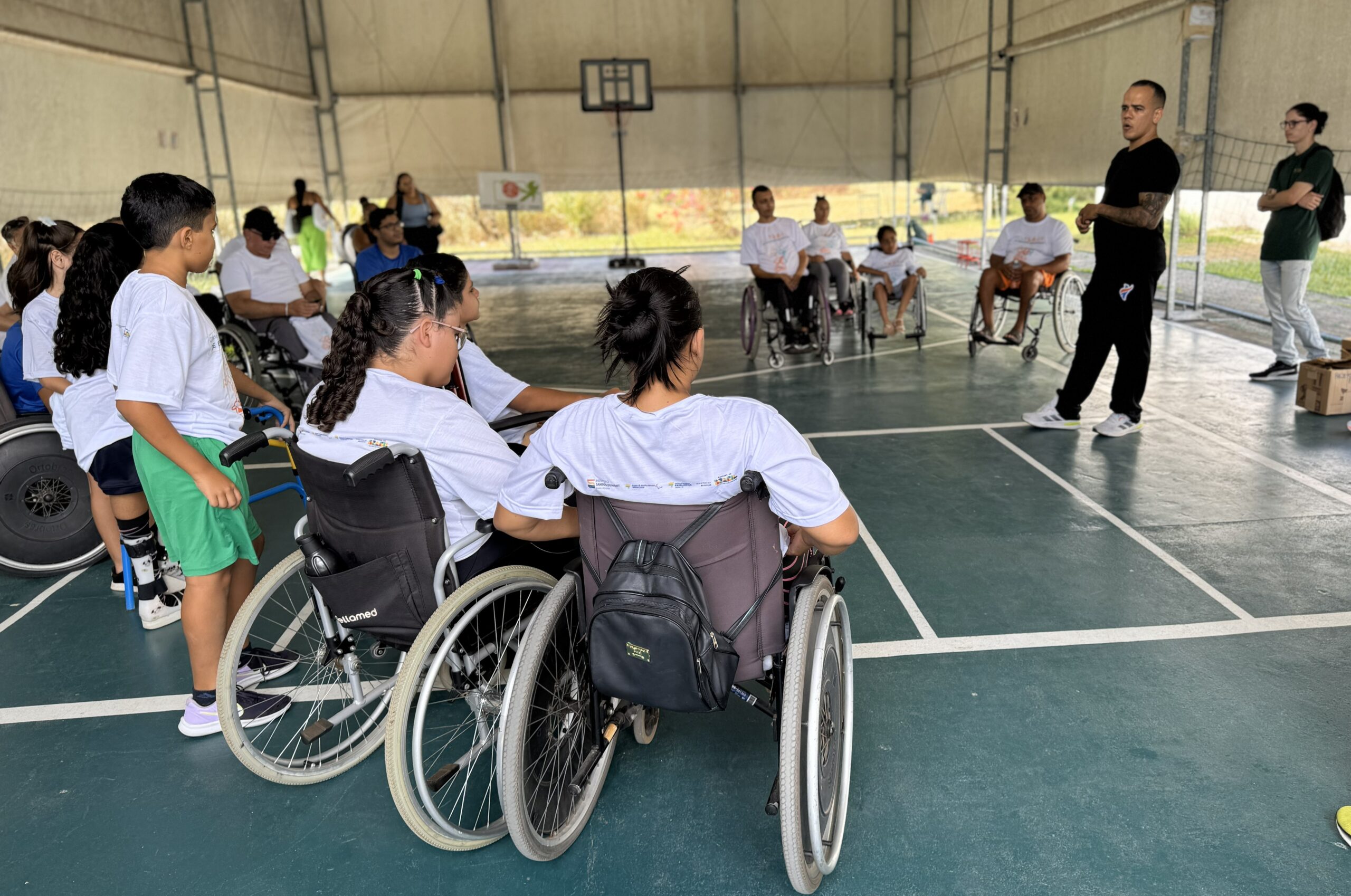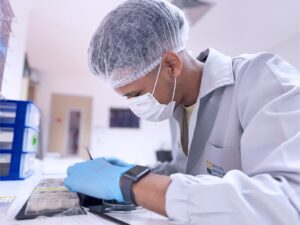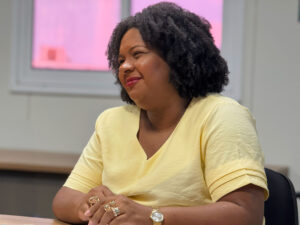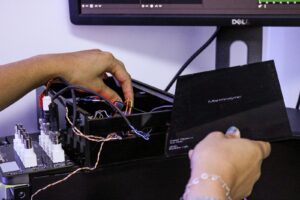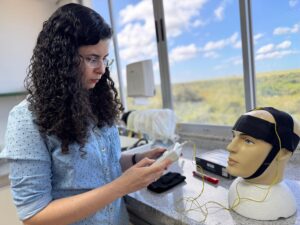The importance of stimulating babies' senses
24/04/207
Text and photo: Luiz Paulo Juttel – Ascom ISD
Sensory play helps children feel more comfortable with the world around them and their bodies, encourages them to be more interactive and sociable, and reinforces the emotional bond between parents and children. Children learn best when information is processed by more than one sense at the same time. This type of multisensory stimulus helps in the physical, cognitive, social, emotional and language development of the individual.
In the last month of March, professionals from the Anita Garibaldi Health Education and Research Center (CEPS) developed an activity, within the Art of Growing Project, which showed parents how simple and important it is to stimulate their babies' five senses, in addition to balance and the notion of their own body.
Professionals set up four stations. The first with two sensory boxes, one with beans and the other with rice, where toys were hidden for the children to find. The second was a sensory rug created by the team. In it, children could touch objects with different textures. Mothers received materials to produce their own rugs at home. A swivel chair and a ball allowed the babies to spin and jump, stimulating the sense of their bodies. At the fourth station, a massage session was performed on the children, based on the shantala. The following video shows how this Arte de Crescer activity went.
The success of this initiative led the organizers to structure an expanded version of the activity that will be open to all mothers and babies assisted at CEPS.
art of growing up
O Art of Growing Project performs weekly activities that seek to enhance neuropsychomotor, cognitive, affective stimulation and social skills of children assisted at CEPS. In an interdisciplinary way, it is expected to systematically contribute to child development in First and Second Childhood.
Among the main objectives of the Project are: to promote workshops for CEPS patients and their families in order to offer information to enhance the motor, cognitive, affective stimulation and social skills of children; provide undergraduates in curricular internship with knowledge and understanding about the early psychomotor intervention that occurs between 0 and 3 years of age, with the aim of offering adequate stimuli to expand the baby's motor, social and affective skills, in addition to enhancing neuropsychomotor development and minimize the risks of any motor, cognitive or behavioral impairment; offer educational support to caregivers and clinical support to children embraced by the Macaibense Association of Institutional Reception (AMAI).



